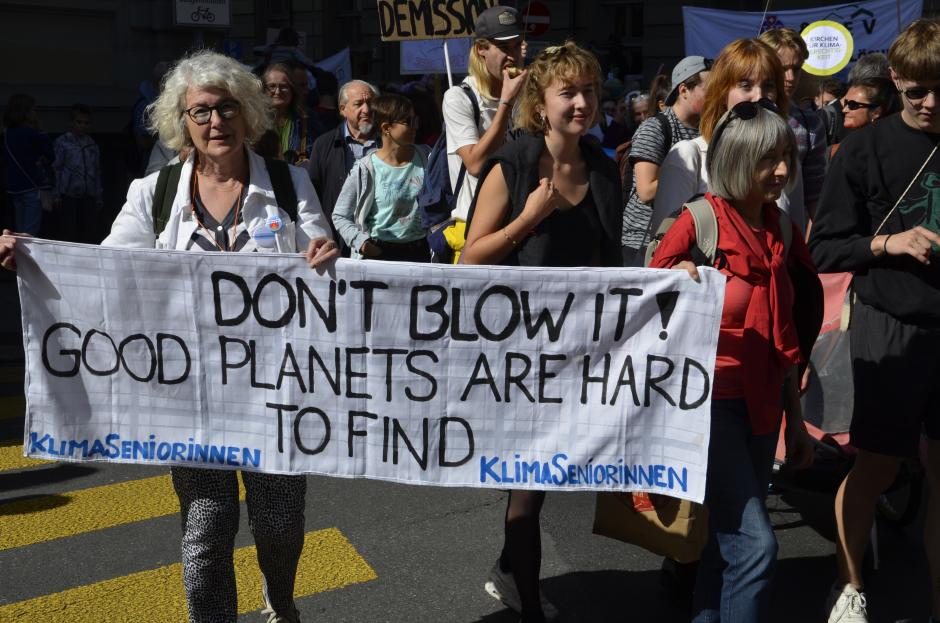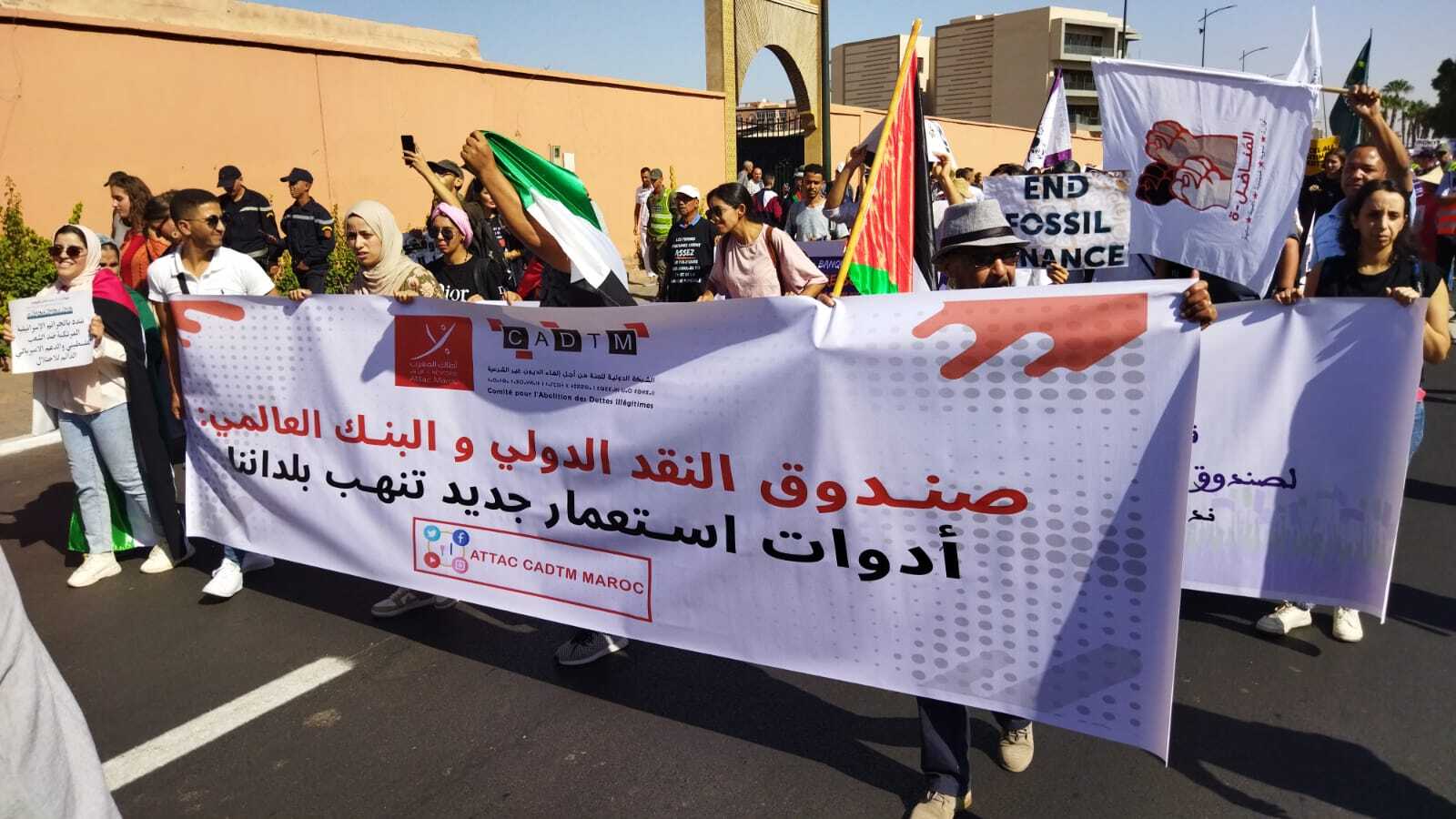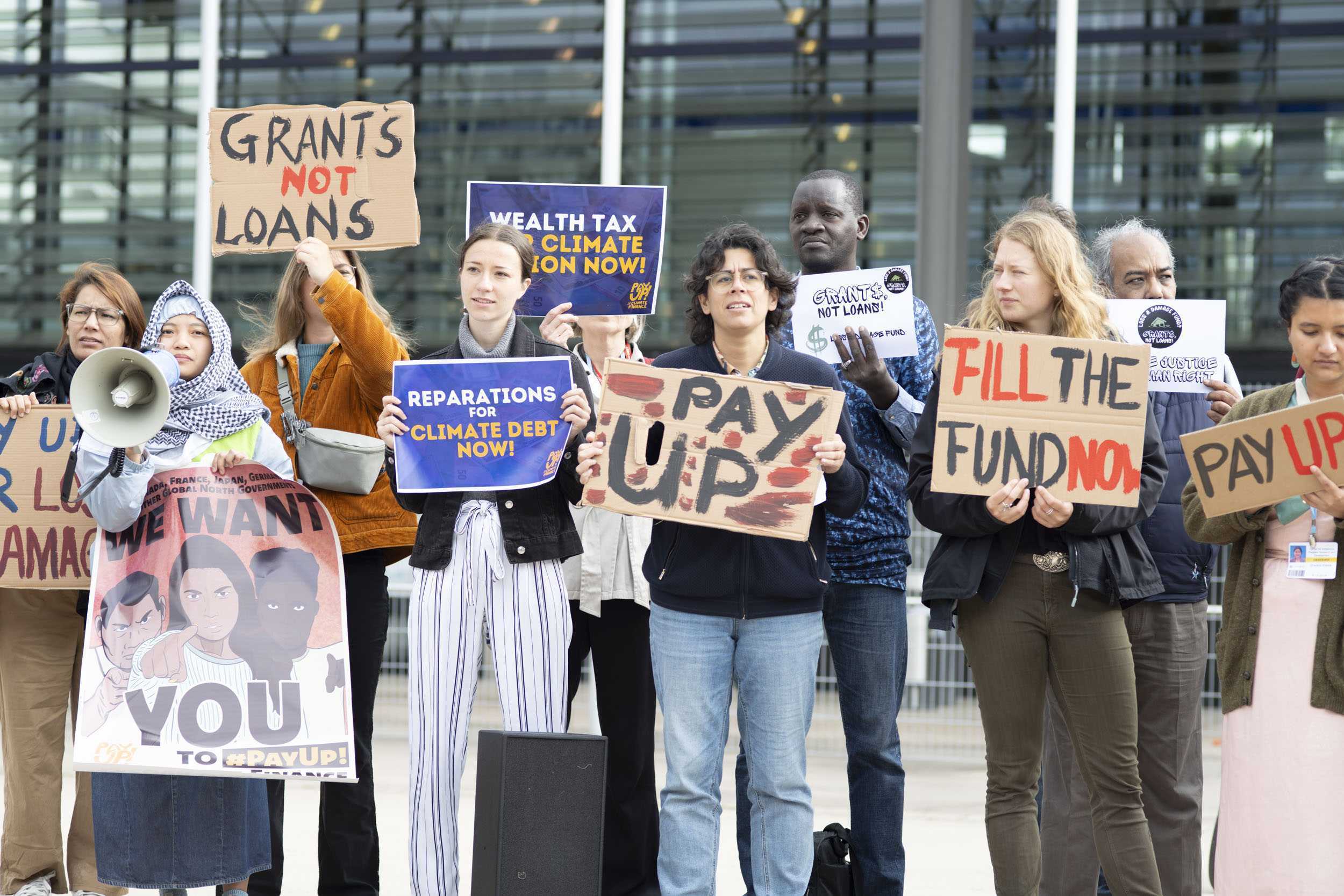This year, two of the most important climate litigation cases in which ESCR-Net has intervened had rulings from the European Court of Human Rights. On April 9, 2024, the Court handed down long-awaited judgments in two cases examining States’ climate change obligations under the European Convention on Human Rights: the cases of KlimaSeniorinnen and Duarte Agostinho.
While the Court held that the claims in the Duarte Agostinho case were inadmissible, the KlimaSeniorinnen judgment—in which the Court ruled for the first time that a State’s failure to take actions to mitigate climate change breached the right to private and family life and the right to a fair trial— is a significant development. The Court’s decision was based on its finding that Switzerland had failed to adopt a domestic regulatory framework to quantify national greenhouse gas emissions and meet its own emission reduction targets. The Court also found that the Swiss courts had failed to hear legal challenges against the authorities’ inaction.
Cases Context
In Klimaseniorinnen, a group of older women residing in Switzerland represented by Greenpeace petitioned the Court for redress related to violations linked to their lives and health, among other rights, by Switzerland’s contributions to climate change. The petitioners point to harmful heat waves and other significant harms posed by the climate crisis.
Here, you can access more details about the case.
In Duarte Agostinho, youth residents of Portugal represented by the Global Legal Action Network (GLAN) petitioned for redress for climate change-induced violations linked to their rights to life and a healthy environment, among others, as harmed by 33 States under the jurisdiction of the European Court. The youths point to catastrophic recent climate events, including mass fires in Portugal, in their petition linking such harms to years of contributions to climate change by the respondent States.
Here, you can access more details about the case.
ESCR-Net Interventions in the Cases
In 2022, collectives of ESCR-Net members filed third-party interventions in a pair of groundbreaking climate change-related human rights cases before the Grand Chamber of the European Court of Human Rights.
The interventions in the KlimaSeniorinnen and the Duarte Agostinho cases offered the Court international and comparative standards and jurisprudence on issues touching on the impacts of the climate crisis on the enjoyment of a healthy environment and related economic, social and cultural rights (ESCR), as well as the right to life; the disproportionate impacts of the climate crisis on the human rights of specific populations— including, in KlimaSeniorinnen, on the rights of older women—and the corresponding State duty to ensure substantive equality as well as prevent and redress intersectional discrimination; and the State duty to prevent climate change-related human rights harm and other foreseeable harm utilizing maximum available resources and effectively regulating businesses.
Outcomes and Members’ Reactions to the Rulings
On April 9th, the European Court declared the Duarte Agostinho application inadmissible. The court ruled that it was extraterritorial in a manner that did not extend jurisdiction against other States except for Portugal as the plaintiffs are living in Portugal. With respect to Portugal, the Court declared the petition inadmissible on the grounds of non-exhaustion of domestic remedies. The decision of the court to dismiss Duarte Agosthino case sparked concerns on how it applied standards on extraterritoriality, which is not aligned with and is a regression from how the United Nations, International Court of Justice, Inter-American and African human rights courts have interpreted international human rights law. The decision undermines the reach of the European Convention and raises the spectre of impunity for European States’ climate harms especially impacting communities in the Global South.
The third-party intervention submitted by ESCR-Net’s members argued that “… In line with international, regional and comparative constitutional law frameworks, States must adopt and enforce adequate and effective legislative and administrative measures to reduce emissions within their territories and extraterritorially, based on the best available science and consistent with the Paris Agreement, in conformity with human rights standards, and with a focus on protecting vulnerable communities, such as future generations.”
On that same day, KlimaSeniorinnen provided another opportunity for the Court to consider the scope of States’ existing obligations under the European Convention of Human Rights in the context of climate change. The Court found that Switzerland’s failure to do enough to cut its national greenhouse gas emissions was a clear violation of the human rights of a group of more than 2,000 older Swiss women. The women argued successfully that their rights to privacy and family life were being breached because they were particularly vulnerable to the health impacts of heatwaves.
Members reacted to the landmark decision and its acknowledgment of the climate crisis as a human rights crisis. Seb Duyck, the Human Rights and Climate Campaign Manager at the Center of International Environmental Law (CIEL), provided a brief analysis on the decision via X (formerly Twitter).
CIEL Senior Attorney, Joie Chowdhury, also shared in her statement via Reuters that “We expect this ruling to influence climate action and climate litigation across Europe and far beyond. The ruling reinforces the vital role of courts – both international and domestic – in holding governments to their legal obligations to protect human rights from environmental harm.”
In its reaction, the Global Initiative for Economic, Social and Cultural Rights (GI-ESCR), a member and collaborator in the collective third-party intervention for this case echoed that “This ruling from the ECtHR marks a significant step forward, empowering individuals to demand robust climate regulations and carbon budgets from their governments. The ground-breaking nature of the decision will herald a pivotal moment for climate justice litigation at the local and international level, shaping and advancing the trajectory of climate justice litigation worldwide.”
The decision holds an expansive interpretation of the right to private and family life under Article 8 of the ECHR, inclusive of environmental concerns. The Court reaffirmed that the scope of protection under Article 8 of the Convention extends to the adverse effects on human health, well-being and quality of life arising from various sources of environmental harm and risk of harm. The State must do its part to ensure such protection by adopting and effectively applying measures to mitigate the effects of climate change. Based on this obligation and other considerations, the Court held that effective respect for the rights protected under Article 8 requires States to take measures for the substantial and progressive reduction of their respective GHG emission levels, the court called for immediate action. However, concerns remain on how the Court did not order Switzerland to accelerate its pathway towards net zero emissions which is currently set to be by 2050, almost thirty years from now despite the severe impacts facing its citizens.
While welcoming the landmark decision by the European Court, the International Commission of Jurists through its Commissioner, Marco Sassòli, stated that “This is an important judgment protecting human rights of those who live today and of future generations, in Switzerland and everywhere in the world. It is not sufficient that Switzerland accepted the greenhouse gas reduction targets under the 2015 Paris Agreement and clarified them in its legislation. It must also take measures sufficient to reach those targets. The Court left it to Switzerland to decide the measures, but they must be sufficient to reach the targets.”
Members also drew connections between the two cases, with Aiofe Nolan noting in her article, “In the public hearing in KlimaSeniorinnen, members of the Court made reference to the issue of future generations and inter-generational equity in the context of questions on the precautionary principle and the issue of ‘fairness between generations’ (Judge Bårdsen), as well as in the context of victim status, with Judge Guyamor noting that there is ‘an inter-generational inter-individual dimension to problems when it comes to climate change’. (In contrast, in the Duarte hearing, questions focused primarily on exhaustion of domestic remedies (and remedies available through EU law) and jurisdiction, with no specific focus on inter-generational justice or future generations).
Members Involved
The collective third-party intervention in Duarte Agostinho was by submitted by Al-Haq, ALTSEAN-Burma, Center for the Study of Law, Justice and Society – Dejusticia, Comisión Colombiana de Juristas (CCJ), Comité Ambiental en Defensa de la Vida (CADV), the European Center for Constitutional and Human Rights (ECCHR), FIAN International, Fédération Internationale des ligues des Droits de l’Homme (FIDH), the Global Initiative for Economic, Social, and Cultural Rights (GI-ESCR), Human Rights Action (HRA), the International Human Rights Clinic at the University of Virginia School of Law, Layla Hughes, Minority Rights Group International (MRG), Observatori DESC (ESCR observatory), the Oficina para América Latina de la Coalición Internacional para el Hábitat (HIC-AL), and coordinated by ESCR-Net.
The third-party intervention in Klimaseniorinnen was submitted by ALTSEAN-Burma, Comisión Colombiana de Juristas (CCJ), Comité Ambiental en Defensa de la Vida (CADV), the European Center for Constitutional and Human Rights (ECCHR), FIAN International, the Global Initiative for Economic, Social, and Cultural Rights (GI-ESCR), Human Rights Action (HRA), the International Human Rights Clinic at the University of Virginia School of Law, Layla Hughes, Minority Rights Group International (MRG), Observatori DESC (ESCR observatory), the Oficina para América Latina de la Coalición Internacional para el Hábitat (HIC-AL) and the Women’s Legal Centre (WLC) and coordinated by ESCR-Net.


